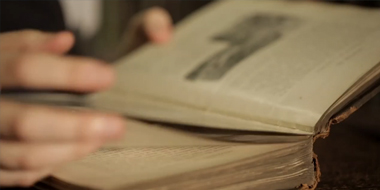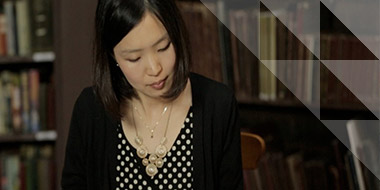-
Study
-
Quick Links
- Open Days & Events
- Real-World Learning
- Unlock Your Potential
- Tuition Fees, Funding & Scholarships
- Real World Learning
-
Undergraduate
- Application Guides
- UCAS Exhibitions
- Extended Degrees
- School & College Outreach
- Information for Parents
-
Postgraduate
- Application Guide
- Postgraduate Research Degrees
- Flexible Learning
- Change Direction
- Register your Interest
-
Student Life
- Students' Union
- The Hub - Student Blog
- Accommodation
- Northumbria Sport
- Support for Students
-
Learning Experience
- Real-World Learning
- Research-enriched learning
- Graduate Futures
- The Business Clinic
- Study Abroad
-
-
International
International
Northumbria’s global footprint touches every continent across the world, through our global partnerships across 17 institutions in 10 countries, to our 277,000 strong alumni community and 150 recruitment partners – we prepare our students for the challenges of tomorrow. Discover more about how to join Northumbria’s global family or our partnerships.
View our Global Footprint-
Quick Links
- Course Search
- Undergraduate Study
- Postgraduate Study
- Information for Parents
- London Campus
- Northumbria Pathway
- Cost of Living
- Sign up for Information
-
International Students
- Information for International Students
- Northumbria and your Country
- International Events
- Application Guide
- Entry Requirements and Education Country Agents
- Global Offices and Regional Teams
- English Requirements
- English Language Centre
- International student support
- Cost of Living
-
International Fees and Funding
- International Undergraduate Fees
- International Undergraduate Funding
- International Masters Fees
- International Masters Funding
- International Postgraduate Research Fees
- International Postgraduate Research Funding
- Useful Financial Information
-
International Partners
- Agent and Representatives Network
- Global Partnerships
- Global Community
-
International Mobility
- Study Abroad
- Information for Incoming Exchange Students
-
-
Business
Business
The world is changing faster than ever before. The future is there to be won by organisations who find ways to turn today's possibilities into tomorrows competitive edge. In a connected world, collaboration can be the key to success.
More on our Business Services-
Business Quick Links
- Contact Us
- Business Events
- Research and Consultancy
- Education and Training
- Workforce Development Courses
- Join our mailing list
-
Education and Training
- Higher and Degree Apprenticeships
- Continuing Professional Development
- Apprenticeship Fees & Funding
- Apprenticeship FAQs
- How to Develop an Apprentice
- Apprenticeship Vacancies
- Enquire Now
-
Research and Consultancy
- Space
- Energy
- AI Futures
- CHASE: Centre for Health and Social Equity
- NESST
-
-
Research
Research
Northumbria is a research-rich, business-focused, professional university with a global reputation for academic quality. We conduct ground-breaking research that is responsive to the science & technology, health & well being, economic and social and arts & cultural needs for the communities
Discover more about our Research-
Quick Links
- Research Peaks of Excellence
- Academic Departments
- Research Staff
- Postgraduate Research Studentships
- Research Events
-
Research at Northumbria
- Interdisciplinary Research Themes
- Research Impact
- REF
- Partners and Collaborators
-
Support for Researchers
- Research and Innovation Services Staff
- Researcher Development and Training
- Ethics, Integrity, and Trusted Research
- University Library
- Vice Chancellors Fellows
-
Research Degrees
- Postgraduate Research Overview
- Doctoral Training Partnerships and Centres
- Academic Departments
-
Research Culture
- Research Culture
- Research Culture Action Plan
- Concordats and Commitments
-
-
About Us
-
About Northumbria
- Our Strategy
- Our Staff
- Our Schools
- Place and Partnerships
- Leadership & Governance
- University Services
- Northumbria History
- Contact us
- Online Shop
-
-
Alumni
Alumni
Northumbria University is renowned for the calibre of its business-ready graduates. Our alumni network has over 253,000 graduates based in 178 countries worldwide in a range of sectors, our alumni are making a real impact on the world.
Our Alumni - Work For Us
The Environmental Humanities Research Group brings together scholars from across the Department of Humanities and has particular strengths in history, literary studies and creative writing. We have strong links with regional organisations, including the Environment Agency, Northumberland National Park Authority, the Northumberland Wildlife Trust, the National Railway Museum (York) and the Forestry Commission. We are also involved with international scholarly societies and organisations, including the European Society for Environmental History, the Association for the Study of Literature and the Environment, the Rachel Carson Center in Munich, the Arcadiana blog and the Coastal History Network.
Areas that we research include the history of national parks, nature conservation and environmental activism; cultural and intellectual histories of energy; animal studies; responses to natural disasters, particularly by religious communities; the ecological history of British Empire, particularly Australia and the Caribbean; theories of mobility, borders, and landscape; and the history of sanitation and water and river management from the early modern through to the modern period. Creative writers associated with the group are particularly interested in the poetry and prose of place, nature and human-animal relationships.
Published and forthcoming books by members of the group include environmental histories of the River Tyne, of Dartmoor, of the Los Angeles’s Beaches and of early modern brewing; nature writing memoirs; histories of prayer and natural disaster in the British Empire; a collective biography of women environmental activists in twentieth-century Britain; a study of the literary landscapes of the Anglo-Scottish Borderlands; and an ecocritical study of colonial natural history.
Three of our PhD students have recently won AHRC-funding and one of our members, Dr Gareth Roddy, is a Leverhulme Early Career Research Fellow pursuing a project entitled ‘Enchantment and affect in the borderscapes of Britain and Ireland, c. 1880–1979’. Matthew Kelly is involved in the AHRC-funded project ‘Decommissioning the Twentieth Century: Energy Landscapes, Heritage and Community’ as part of their ‘Changing Landscapes: Towards a new Decision Making Framework for UK Landscapes and Land Assets’ scheme. Tony Williams, Ysanne Holt and Matthew Kelly are part of the Northumberland Wildlife Trust National Lottery-funded Wildwood regeneration project.
The group runs a reading group, has regular brown bag lunches and has organised a number of academic events, including the 2019 Environmental History Workshop (EHW) conference on the theme of ‘Flows,’ a British Academy-funded conference on ‘Rural Modernism,’ and the biennial conference of the Association for the Study of Literature and Environment, UK and Ireland (ASLE-UKI) in September 2022 on the theme of ‘Epochs, Ages, and Cycles: Times and the Environment’.
Dr Leona Watson (leona.watson@northumbria.ac.uk) is happy to include anyone who would like to be kept up-to-date with our activities or would like to attend our events.
Selected recent and current activities and projects:
• 'Coastal Connections’ 2021-2022 seminar supported by the Institute of Historical Research and organised by the Coastal History Network. Find out more.
• Arcadiana blog (Arcadiana is a blog about the environment in literature and culture. It is hosted by postgraduate members of the European Association for Literature, Culture and the Environment (EASLCE). Julia Ditter is founding member and editor of the blog)
• The Northumberland Wildlife Trust National Lottery-funded Wildwood regeneration project
• AHRC-funded project ‘Decommissioning the Twentieth Century: Energy Landscapes, Heritage and Community’
• Conference rural modernism (2019)
Membership
PGR Students
Louis Bonnett
Julia Ditter – find out more about Julia's work on her website
Ciaran Johnson
Nick Pepper – Nick’s research area is late 20th / early 21st century national park history. He is working towards a combined doctoral award in conjunction with Northumberland National Park Authority.
Thomas Ratcliffe
Sofie Schrey – find out more about Sofie's work on her website
Katherine Stanton – Katherine's PhD study explores post-Millennial British working-class literature. Katherine is interested in issues of class – and intersections with gender, race, and other categories of identity – in contemporary place and nature writing and the evolution of working-class narratives in the last two decades, particularly in relation to the ways in which these stories articulate and contest social inequalities.
A blog on all manner of research, publications, lectures, conferences, symposia, and more from Northumbria University's History and American Studies programmes.
Our students learn from the best – inspirational academic staff with a genuine passion for their subject. Our courses are at the forefront of current knowledge and practice and are shaped by world-leading and internationally excellent research.
The Department of Humanities offers a number of undergraduate and postgraduate courses. By studying at Northumbria you will become part of a passionate and creative community.
Latest News and Features
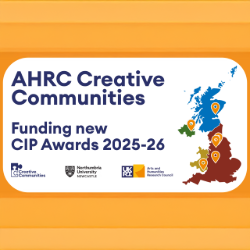
Mission Research: UKRI Community Innovation Practitioner Awards Scaled to Empower Place-Based Innovation Across All 4 Nations
The Creative Communities programme, funded by the UKRI Arts and Humanities Research Council…
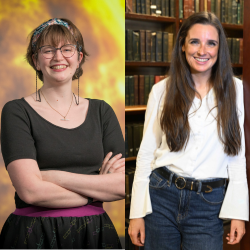
Northumbria researchers announced as winners of Future Leaders Fellowships
Two talented researchers from Northumbria University have been awarded a share of £120 million…

Northumbria expands results day support for students
Northumbria University is expanding and enhancing the support it provides to students receiving…
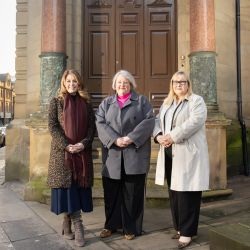
Mayor backs new Centre for Writing to become North East creative powerhouse
Plans to open a new national centre for writing will take a big step forward next week as North…

North East universities to host international Medieval and Renaissance music conference
An international conference celebrating the music of the medieval and Renaissance periods will…

Northumbria wins recognition for expanding access to higher education
Northumbria University has been named Higher Education Institution of the Year at a prestigious…
Upcoming events

V Durham Northumbria Colloquium for Medieval and Golden Age Studies
Northumbria University


